Depending on the ranking, the best law schools in Canada may vary. However, in 2025, the Top 10 is as follows:
- University of Toronto
- McGill University
- University of British Columbia
- York University
- University of Ottawa
- Dalhousie University
- Queen’s University
- Université de Montréal
- University of Alberta
- University of Victoria
Choosing the right law school is a pivotal decision for any aspiring lawyer. It will shape your career and influence your professional network. How can you choose the best option for you?

This guide by JuriGo gives you a starting point to determine which are the best schools for you if you wish to study law in Canada!
Why pursue a law degree?
Pursuing a law degree is not merely about becoming a lawyer, it's a pathway to a multitude of careers and opportunities.
One of the benefits of obtaining a law degree is its versatility, as graduates are not confined to courtrooms or law firms. They also thrive in various sectors like corporate management, international relations, government, and non-profits.
The skills developed during a law education - critical thinking, analytical reasoning, and persuasive communication - are highly prized in many fields. A law degree equips its graduates to navigate complex legal and ethical challenges, making them valuable assets in any professional setting.
Law graduates also play pivotal roles in shaping society. Whether it’s advocating for justice, influencing policy, or contributing to legal reforms, their impact extends beyond individual cases to the broader social fabric.
As such, a law degree offers both a platform for personal career success and a chance to make significant societal contributions.
What makes a law school “the best”?
To determine what the “best” law school is, most ranking sources (Times Higher Education or QS World University Rankings) take into account the academic reputation, the employer reputation, and the research impact.
- Academic reputation: This reflects the quality of education, including the curriculum, teaching methods, and intellectual environment. A school with a strong academic reputation attracts renowned faculty and engages in groundbreaking legal research, contributing to a rich learning experience.

- Employer reputation: This indicates how well graduates are perceived in the job market. Schools with a high employer reputation score are known to produce graduates who are well-prepared, adaptable, and highly sought after in various legal and non-legal roles.
- Research impact: The extent and influence of a school’s research indicate its contribution to the field of law. High-impact research can shape legal discourse, influence courts and policy, and signify a school's commitment to advancing legal knowledge.
Finding your “best” law school
While rankings provide a general overview, the "best" law school is profoundly subjective and varies for each individual. It's about finding a school that aligns with your career aspirations, values, and learning style.
For some, the best school might be one with a strong focus on environmental law, while for others, it might be a school renowned for its trial advocacy programs. The location, campus culture, class size, and available extracurricular activities will also play significant roles in shaping your law school experience.
Ultimately, the best law school is one where you can envision yourself thriving, not just academically but also personally. It's about where you feel challenged and supported, where you can build lasting relationships, and where you can lay a strong foundation for your future career.
These are the top 10 best law schools in Canada
For 2025, ranking sources have released their ranking for law schools in every country. Although this top 10 relies on Times Higher Education, QS World University Rankings is also a good reference:
| Rank | University | Location | Global Rank for Law |
|---|---|---|---|
| 1 | University of Toronto | Toronto | 22 |
| 2 | McGill University | Montreal | 33 |
| 3 | University of British Columbia | Vancouver | 41 |
| 4 | York University | Toronto | 63 |
| 5 | University of Ottawa | Ottawa | 69 |
| 6 | Dalhousie University | Halifax | 89 |
| =7 | Queen’s University | Kingston | 101-125 |
| =7 | Université de Montréal | Montreal | 101-125 |
| =9 | University of Alberta | Edmonton | 126-150 |
| =9 | University of Victoria | Victoria | 126-150 |
University of Toronto
The University of Toronto Law School, renowned for its global standing and comprehensive legal education, offers a range of prestigious law degrees. Known for its rigorous and holistic approach to legal education, it is a great institution for aspiring legal professionals from around the world.
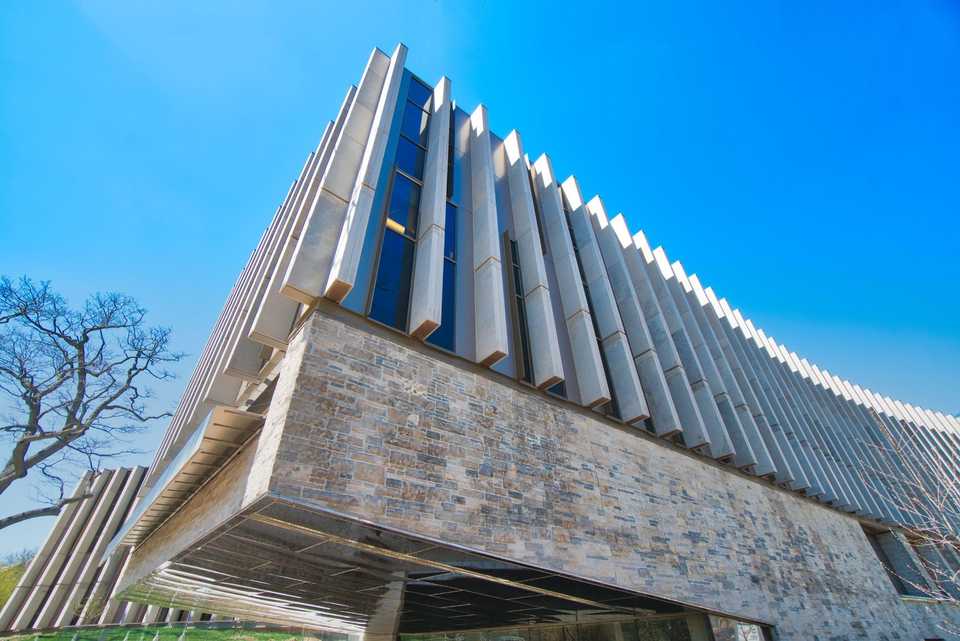
JD program: structure and requirements
| Program length and delivery | The Juris Doctor (JD) program at the University of Toronto is a three-year, full-time program. Exceptionally, students can request to complete it part-time. The program runs during the Fall and Winter terms, with no courses offered in the summer. |
|---|---|
| Entry point | The program begins in the latter half of August (for first-year entry) or early September (for upper-year entry). |
| Admissions process | Admissions are based on LSAT results, academic records, and personal essays. The process is holistic, meaning all these factors are considered in tandem, with significant emphasis on the essays. |
| Inclusivity | The law school encourages applications from those with scores below the median, recognizing the value of a complete personal profile over mere numerical measures. Separate categories exist for mature students and Indigenous applicants. |
| Tuition fees (2025-2026) | Ontario residents: $33,040; Non-Ontario residents: $37,510; International $66,020 |
| Financial aid | The University of Toronto offers various scholarships, bursaries, and financial aid options to assist students. The school is committed to ensuring that financial constraints do not prevent talented students from pursuing their legal education. |
| Focus areas | The school excels in various legal fields including health, climate risk, business, privacy, and Indigenous rights. |
| Career opportunities | In 2024-2025, a remarkable 94,3% of JD students secured articling positions, including placements in major law firms in Canada and internationally. |
Other law programs
Besides the JD, the school offers the Master of Laws (LLM), Doctor of Juridical Science (SJD), Master of Studies in Law (MSL), and the Global Professional Master of Laws (GPLLM).
Highlights
The alumni network includes leaders in the legal profession, judiciary, public service, business, and academia, both in Canada and abroad. The school boasts of placing more master’s and doctoral graduates in tenure-stream faculty positions in Canada than any other law school in the country.
McGill University
The Faculty of Law at McGill University, renowned for its unique and globally recognized legal education, offers the innovative BCL/JD program, exemplifying a modern approach to legal studies. This program is characterized by several key features:

BCL/JD program: structure and requirements
| Two degrees | Graduates receive two degrees – a Bachelor of Civil Law (BCL) and a Juris Doctor (JD), encompassing both common law and civil law, which are foundational to many legal systems worldwide. |
|---|---|
| Transsystemic approach | Courses are designed to teach legal traditions in a comparative manner, incorporating examples from various jurisdictions.The program also places emphasis on Indigenous legal traditions, with a mandatory first-year course in this area. |
| Bilingual education | The program is bilingual, with materials in English and French. Students are expected to be fluent in one language and possess at least passive bilingualism in the other. |
| Program length and delivery | The BCL/JD program at McGill University is designed to be completed in a standard timeframe of three to four years, with most students completing the program in 3.5 years. The academic year typically follows the traditional university schedule, starting in the fall and concluding in the spring, with summer breaks free from mandatory courses (though students may take other law courses in the summer). |
| Entry point | The program begins in the last week of August (for first-year entry) or early September (for upper-year entry). |
| Admissions process | The admissions process is holistic, considering a wide range of factors beyond academic performance, such as extracurricular activities, personal essays, and life experiences. In addition, applicants must have a minimum of 60 university credits or a Quebec CEGEP diploma in order to apply. While the LSAT is not mandatory. The last data shows an average LSAT score of 164 (87.5 percentile) and an R-Score of 34.425. |
| Inclusivity | The Faculty’s holistic approach in its admissions process ensures a diverse range of perspectives within the law school, enriching the learning environment. Moreover, special attention is given to supporting Indigenous applicants, including assistance in meeting language proficiency requirements and other unique supports tailored to Indigenous students. This commitment extends into the curriculum, with mandatory courses on Indigenous legal traditions. |
| Tuition fees (2025-2026) | Quebec residents: $5,760.32 per semester; Non-Quebec residents: $20,553.62 per semester; International students: $67,583.42 per year. |
| Financial aid | Various scholarships and student aid options are available, with automatic consideration for Law Faculty scholarships for eligible students. |
| Focus areas | Key research areas include dispute resolution, legal pluralism and human rights, legal theory and comparative law, public policy, and business law. |
| Career opportunities | Graduates of McGill's Faculty of Law are versatile and have pursued successful careers as top lawyers in major cities globally, arbitrators, advocates, corporate legal officers, judges, ministers, ambassadors, professors, journalists, and CEOs. |
Other law programs
McGill also offers joint BCL/JD programs with the Desautels Faculty of Management (MBA with integrated BCL/JD) and the School of Social Work (MSW with integrated BCL/JD).
In addition, the Faculty provides a doctoral program and a master's program, known for a critical and pluralist approach to legal research.
Highlights
Many graduates become leading lawyers in major cities across the world, such as Montreal, Toronto, New York, London, Paris, and Dubai, demonstrating the program's adaptability to different legal systems and cultures.
Additionally, a significant number of McGill Law alumni have been appointed to judicial positions, including on the Supreme Court of Canada. McGill boasts of having the most alumni appointed to the Supreme Court of Canada in the history of the country, a testament to the high regard in which its legal education is held.
University of British Columbia
The University of British Columbia hosts one of Canada's leading law schools, the Peter A. Allard School of Law. Located in British Columbia's beautiful natural environment, the school offers a dynamic setting for legal studies.
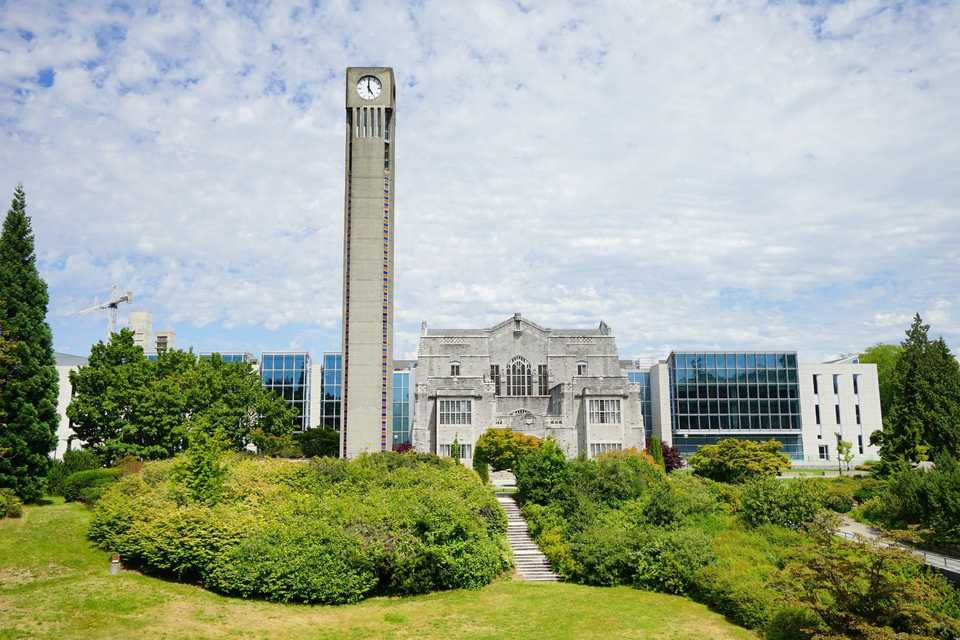
JD program: structure and requirements
| Program length and delivery | The JD program at Allard Law is a full-time, three-year course. Students are expected to take around 30 credits per year and must complete 60 upper-year credits over the final two years of the program, including winter and summer sessions. |
|---|---|
| Entry point | The program begins in early September. |
| Admissions process | Admission considers GPA, LSAT scores, and personal statements. Applicants must have completed an undergraduate degree. Currently, the median LSAT score of successful applicants is 166 (93rd percentile) and the median GPA is 84%. |
| Inclusivity | Allard Law offers distinct admission categories to accommodate a wide range of applicants. These include general applicants, discretionary applicants, and Indigenous applicants. Moreover, the school's Indigenous Legal Studies program and the Indigenous Community Legal Clinic are notable examples of its commitment to inclusivity. These initiatives not only provide vital legal services to Indigenous communities but also offer educational opportunities for law students to engage with and learn about Indigenous legal issues. |
| Tuition fees (2025-2026) | Domestic Student: $14,232.96 for the first year and $13,343.40 for the second and third years; International student: $45,886.08 for the first year and $43,018.20 for the second and third years. |
| Financial aid | Allard Law offers a range of bursaries and scholarships aimed at alleviating the financial burden on students. These financial aids are designed to recognize academic excellence, financial need, and contributions to the community. |
| Focus areas | Students can choose from four specializations: Indigenous Legal Studies, Business Law, Law & Social Justice, and Environmental and Natural Resource Law. The school is particularly known for its Indigenous Legal Studies and the Indigenous Community Legal Clinic. |
| Career opportunities | Numerous Allard Law graduates have taken prominent positions in the judiciary, government, and public service, playing significant roles in shaping the legal and political framework of Canada. |
Global and domestic influence
The Allard School of Law offers various graduate programs, including the Master of Laws (LLM), PhD in Law, and online courses for foreign-trained lawyers. The school's career services office provides resources and support for students' next steps after graduation.
Highlights
Faculty and alumni from Allard Law have been influential in legal and policy reform within Canada. Their research and expertise contribute to national discussions on various legal issues, from environmental law to human rights and business law.
Alumni of Allard Law have made their mark in international arenas, including global law firms, multinational corporations, international courts, and NGOs. Their work often involves cross-border transactions, international arbitration, and human rights advocacy.
University of Ottawa
The University of Ottawa's Faculty of Law stands out as a unique and prestigious institution for legal education in Canada. It offers an array of law programs that cater to a diverse student body, including both Common Law and Civil Law programs.
This dual offering makes the University of Ottawa particularly distinctive, as it is one of the few universities in Canada to provide comprehensive legal education in both of Canada's legal systems.
The Common Law Section is committed to offering the JD degree in both of Canada's official languages; English and French, with significant efforts to develop common law vocabulary, teaching materials, and legal scholarship in French.
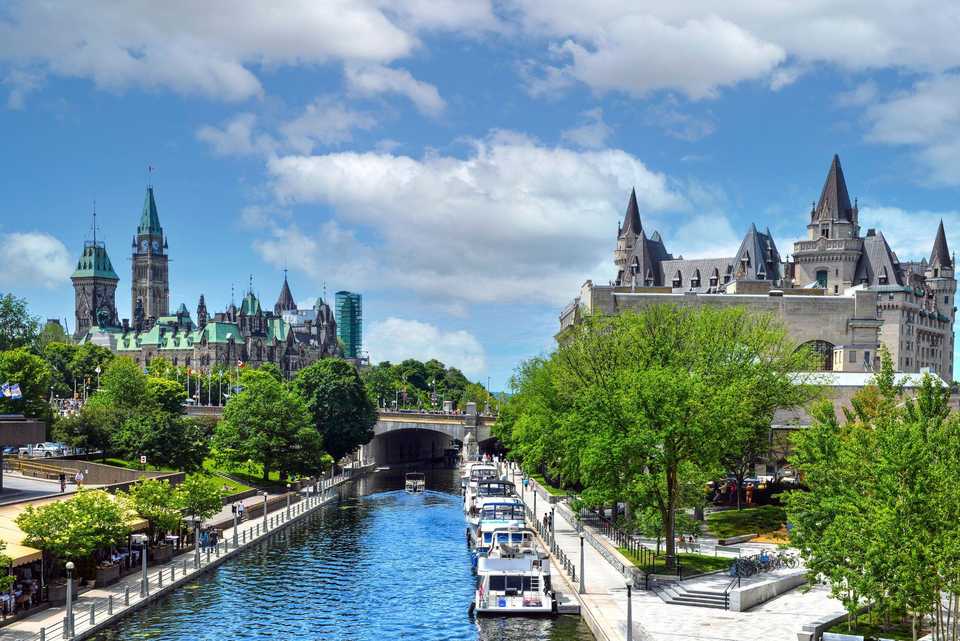
The Civil Law Section, mainly taught in French, offers programs that immerse students in the civil law tradition, which is the legal system used in Quebec and in other jurisdictions.
Common and civil law programs: structure and requirements
| Program length and delivery | The Common Law Section at the University of Ottawa offers a three-year JD program in either English or French. The Civil Law Section, taught in French, is typically a three-year program and is designed to provide a comprehensive education in Quebec civil law. |
|---|---|
| Entry point | The program typically begins in the fall, aligning with the standard academic year. |
| Admissions process | Civil law: Either a diploma from a Quebec college (DEC), a 2-year diploma from an Ontario college (CAAT), ou 1 year of university (minimum average of 78%) with at least 30 credits. If the student comes from college, he must have an average of at least 80% The applicant must be proficient in French. Juris Doctor: In its 3-year undergraduate studies, an average overal of A- or 80% is required. For the English JD program, it is required to have an LSAT score above the 70th percentile (158 or higher). |
| Inclusivity | The school focuses on increasing participation from underrepresented groups, including visible, linguistic, and ethnic minorities; Indigenous peoples; persons with disabilities; economically disadvantaged persons; and individuals regardless of sexual orientation, gender identity, and gender expression. |
| Tuition fees (2025-2026) | Ontario residents: Civil Law ($4,923.64 per term), Juris Doctor ($10,891.00 per term); Ontario non-residents: Civil Law ($5,699.73 per term); Juris Doctor ($10,891.00 per term); International Students: Civil Law ($24,719.50); Juris Doctor ($38,552.46). |
| Focus areas | The law school at the University of Ottawa specializes in areas such as international law, human rights, law and technology, environmental law, and comparative law. These specializations reflect the school's unique position in Canada’s capital and its proximity to major players in the field of information technology. |
| Career opportunities | The University of Ottawa's law school equips students for a variety of career opportunities in national and international law firms, civil and foreign service, nongovernmental organizations, teaching, and more. The diverse specializations and the school's location in Ottawa provide students with a wide range of prospects. |
Other law programs
The University of Ottawa also offers combined JD/MBA with Telfer School of Management, JD/MA in International Affairs, Canadian and American combined JD program, and the Programme de droit canadien for both JD and LLL degrees in three years.
University of Montreal
The Faculty of Law at the University of Montreal is a renowned center for legal education in Canada, offering a rich curriculum that caters to a diverse range of students.
The civil law program (LLB) at the University of Montreal is one of the most comprehensive in the country. It is primarily taught in French, reflecting the faculty's dedication to serving the Francophone community and preserving the civil law tradition in Quebec.

While the focus is on civil law, the University of Montreal also provides avenues for students to gain proficiency in common law. This dual approach ensures that graduates are versatile and equipped to practice in various legal environments.
LLB program: structure and requirements
| Program length and delivery | Most students complete their undergraduate studies in three years (full-time). The program consists of 101 credits. Its special programs include Honours and International streams. The Honours program allows students to take graduate-level courses in their third year, while the International program focuses on global law and includes internships abroad. |
|---|---|
| Entry point | The program typically begins in the fall, aligning with the standard academic year. |
| Admissions process | R-Score of at least 31,505 (the average is 33,168). French proficiency is required. |
| Inclusivity | The University of Montreal's Faculty of Law emphasizes diversity, equity, inclusion, and reconciliation by implementing action plans and policies to promote equal access in education. Additionally, student associations and committees actively support these values through various initiatives focused on diversity, women's rights, Black law students, access to justice, Indigenous law, and the Anglophone law student community. |
| Tuition fees (2025-2026) | Permanent resident of Quebec: $2,177.05 per term; Canadian (Non-resident in Quebec): $5,387.20 per term; International students: $15,602.05 per term; French or French-speaking Belgian student: $5,387.20$ per term. |
| Focus areas | The University of Montreal's Faculty of Law is distinguished by its two world-class research centers focusing on public law and international business law, respectively. It also houses seven chairs and nine research groups that contribute to its intellectual and scientific vibrancy while supporting numerous graduate students. |
| Career opportunities | Graduates from the University of Montreal's Faculty of Law hold influential positions across various fields, including international courts, multinational corporations, national governments, and local communities. They significantly contribute to the evolution of law and the practice of justice, with alumni having played key roles in the Supreme Court of Canada, the United Nations, international criminal courts, and high-level positions in Canadian politics, global corporations, and fields like literature, journalism, sports, and the arts. |
Other law programs
The University of Montreal Faculty of Law offers a range of specialized law programs besides the LLB. These include short graduate programs for specialization in areas like North American common law and business law. It also offers specialized graduate diplomas (DESS) focusing on professional sector specializations with a significant component of applied knowledge.
Additionally, there are unique Juris Doctor (J.D.) in North American Common Law and several Master of Laws (LL.M.) programs, including Comparative Private Law, Notarial Law, Comparative Common Law, and Business Law in a Global Context – each providing in-depth study and research in specific legal fields.
York University
York University's Juris Doctor program, offered through Osgoode Hall Law School, stands as one of Canada's most diverse and dynamic law schools.
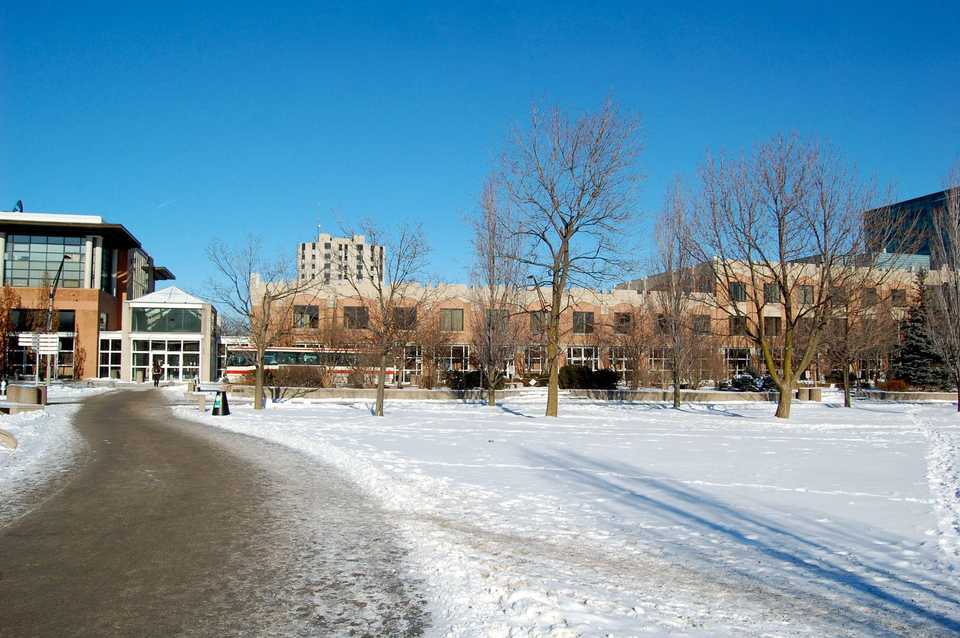
A distinctive feature of the program lies in its commitment to hands-on legal education, blending traditional academics with practical experiences. This approach not only deepens students' legal knowledge but also prepares them for a wide range of career paths in the legal field.
JD program: structure and requirements
| Program length and delivery | The program begins with a foundational first year, followed by upper years offering a flexible and expansive curriculum. This includes over 150 lecture courses and interactive seminars across traditional and emerging legal fields, supplemented by various experiential learning opportunities. |
|---|---|
| Entry point | The program typically begins in the fall, aligning with the standard academic year. |
| Admissions process | Admission to the program is competitive, with a requirement of a minimum of three years of undergraduate study (90 credits) for eligibility. The Law School Admission Test (LSAT) must be completed no later than January of the year of intended start. Applicants over the age of 26 with at least five years of non-academic experience may apply with fewer than three years of university study. |
| Admissions requirements | Must have completed a minimum of 3 years in a recognized university (or be at least 26 years old or have at least 5 years of non-academic experience). During the last year, the median CGPA was 3.70 on a 4.0 scale and the median LSAT was 85th percentile. Extracurricular activities and experiences are considered. |
| Inclusivity | Osgoode Hall Law School and York University are deeply committed to equity, diversity, and inclusion. The school actively welcomes students from varied backgrounds, experiences, and perspectives, fostering an environment where diverse outlooks are valued and encouraged. |
| Tuition fees (2025-2026) | Domestic Students: $26,178.22 (including ancillary fees); Domestic (out of province) Students: $28,720.46 (including ancillary fees); International students: $45,807.56 (including ancillary fees |
| Focus areas | Osgoode Hall is renowned for its dedication to public interest and social justice, which includes human rights law, environmental law, and social advocacy. In addition, the faculty offers expertise in areas like corporate and commercial law, international law, and IP and technology law. Unique offerings include Indigenous law and alternative dispute resolution. |
| Career opportunities | Graduates of the JD program are well-prepared for diverse career paths in the legal profession, both domestically and internationally. The program’s emphasis on practical skills, networking, and professional development opens doors to opportunities in public, private, and non-profit sectors. |
Other law programs
York University also offers graduate programs in law, including the LLM (Research), LLM (Professional), and PhD programs. These programs are recognized for their high standards, innovative approaches, and diverse course offerings, catering to students with varying interests and career aspirations.
Highlights
Osgoode Hall Law School is notable for its Anishinaabe Law Camp, which offers a unique opportunity for students to immerse themselves in Indigenous legal concepts and practices. The faculty is also distinguished by its pioneering Office of Experiential Education, the first of its kind in Canada, which offers a rich array of internships, skills-based courses, and clinical programs, emphasizing reflective learning and ethical deliberation.
Additionally, Osgoode stands out for its strong commitment to public service, housing one of the largest chapters of Pro Bono Students Canada, and actively engages in outreach initiatives like Law In Action Within Schools (LAWS) and Raising the Black Bar, fostering a more inclusive legal profession.
University of Alberta
The University of Alberta Faculty of Law offers a Juris Doctor program that stands out in the Canadian legal education landscape. This three-year degree program is renowned for its comprehensive approach to legal education, blending foundational legal knowledge with opportunities for specialization and practical experience.
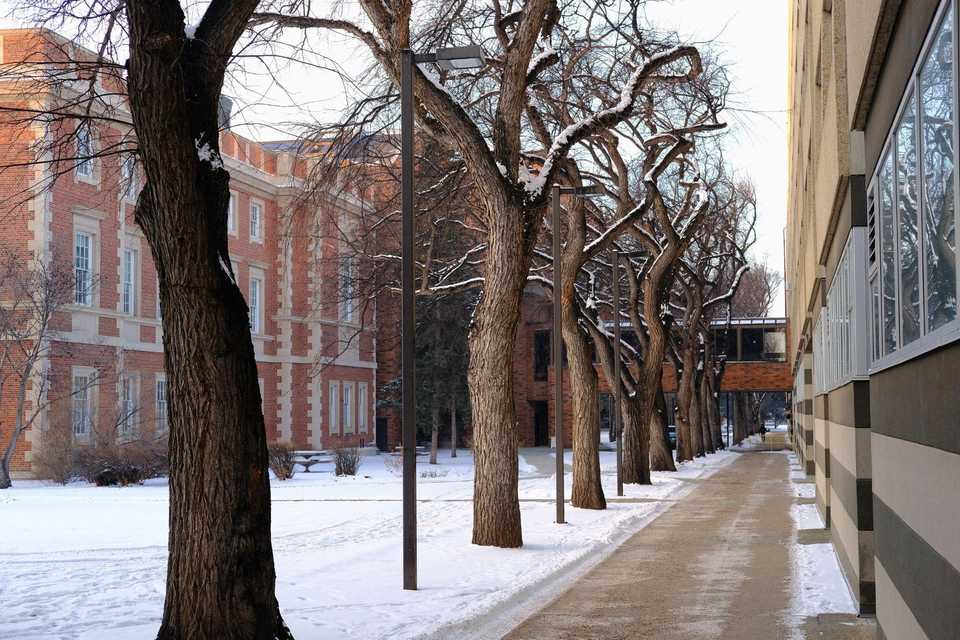
The faculty, known for their expertise and contributions to legal scholarship, provides an education that equips students to excel in various legal careers. The program is structured to foster a strong sense of community and offers unique experiential learning opportunities, preparing graduates for the dynamic challenges of the legal profession.
JD program: structure and requirements
| Program length and delivery | The JD program at the University of Alberta is a full-time, three-year course of study. It emphasizes a balance between academic rigor and practical skills, with a curriculum that integrates traditional legal theories with hands-on learning experiences. |
|---|---|
| Entry point | The program commences annually in the fall. Students begin their journey into legal studies with a curriculum designed to build a solid foundation in the law and its various applications. |
| Admissions process and requirements | The applicant must have a bachelor’s degree or a minimum of 90 credits, a GPA of around 3.8 and a recent LSAT scores. Indigenous applicants can apply if they have at least 60 credits. |
| Inclusivity | The program champions diversity and inclusivity, integrating various legal traditions and perspectives into the curriculum. Initiatives like the Wahkohtowin Law and Governance Lodge demonstrate a commitment to Indigenous legal traditions and reconciliation. |
| Tuition fees (2025-2026) | Canadian students: $19,694.07 for the year; International students: $57,205.34 per year ($171,616.02 for the 3 years) |
| Focus areas | The Faculty of Law offers specialized courses and research opportunities in areas such as Health Law, Constitutional Studies, and Indigenous Law. Students can tailor their studies to their interests, benefiting from the faculty's diverse expertise. |
| Career opportunities | Graduates have a strong track record of securing prestigious clerkships and successful careers in various legal sectors. The Faculty of Law offers robust career services, including job postings, networking events, and individual career counseling. |
Other law programs
Besides the JD, the University of Alberta offers a JD/MBA dual degree, a Master of Laws (LLM), a Doctor of Philosophy (PhD) in Law, and an Internationally Trained Lawyer Pathway for foreign-trained lawyers seeking to practice in Canada.
Highlights
The University of Alberta Faculty of Law is also distinguished by several key features, including:
- Renowned faculty members who have authored leading legal texts.
- A strong sense of community and collaborative spirit.
- Extensive experiential learning opportunities, including clinical programs and moot court competitions.
- A rich history of contributing to law reform and pioneering research in various legal fields, like the Health Law Institute.
University of Calgary
The University of Calgary offers a distinguished Juris Doctor program that stands out for its innovative approach and commitment to preparing students for the legal field. The JD program is renowned for their innovative Calgary Curriculum, a trailblazer in North American legal education that closely aligns teaching methods with practical legal skills needed for professional success.

JD program: structure and requirements
| Program length and delivery | The JD program at the University of Calgary is a full-time program typically completed in three years. The curriculum is delivered through a mix of traditional and innovative teaching methods, ensuring students gain a comprehensive understanding of legal principles and their practical application. |
|---|---|
| Entry point | The program typically begins in the fall, aligning with the standard academic year. |
| Admissions process and requirements | The applicant must have an undergraduate. Last year the average undergraduate GPA was 3.70 out of 4.00. The average LSAT score was 164 (83th percentile) |
| Inclusivity | The University of Calgary JD program emphasizes inclusivity, particularly for Indigenous and Black students, offering dedicated admissions processes for these groups. Additionally, the program welcomes persons with disabilities, ensuring necessary accommodations are provided. |
| Tuition fees (2025-2026) | Canadian students: a fee of $1.379.91 per 3-unit course; International students: a fee of $5,104.83 per 3-unit course. Additional fees include general fees per term ans a health and dental plan. |
| Career opportunities | Law firms, corporations, and other legal settings, particularly in corporate law, benefiting from Calgary's status as a business hub. The Career and Professional Development Office actively supports students in securing internships and job opportunities in various legal sectors. |
Other law programs
Beyond the JD, the University of Calgary offers joint programs such as JD/MBA, JD/MPP, and JD/JD with the University of Houston. Additionally, it offers a Certification in Common Law in French and graduate studies in law, including LLM and PhD programs with various specializations.
Université du Québec
The Université du Québec's law program stands as a beacon of legal education, offering a comprehensive Baccalauréat en droit (Bachelor of Laws, LL.B.) that prepares students for careers as lawyers and notaries.
—IMAGE—
This program is distinctive for its foundational training in law and its unique approach to addressing contemporary legal issues and globalization. It aims to equip future jurists with the necessary tools to defend and promote the rights of individuals and groups, including unions and NGOs.
JD program: structure and requirements
| Program length and delivery | The LL.B. program at Université du Québec requires a total of 98 credits to complete. It is offered in both full-time and part-time formats, providing flexibility to accommodate different student needs. The full-time program typically spans three years, while the part-time option allows for extended duration up to six years. |
|---|---|
| Entry point | Admissions to the program are available for both the fall and winter semesters. This provides prospective students with two opportunities per academic year to commence their legal studies. |
| Admissions process | For fall admissions the program accepts 162 students. For winter, only 50 student (only DEC and University Studies bases) are admitted. Applicants must hold a DEC. The R-score is the only criteria.During fall, Experience-based admissions are also available. This option is particularly interesting for applicants aged 21 or older with relevant professional experience. |
| Admissions requirements | DEC applicants: For the fall semester of 2025, the last admitted candidate had a Cote R of 3.55, while for the winter semester, it was 3.60. |
| Inclusivity | The program exhibits a commitment to inclusivity, offering additional support and tailored admission routes for Indigenous students. The university also provides comprehensive support services for students with disabilities, international students, 2SLGBTQIA+ students, and student parents. |
| Tuition fees (2025-2026) | Quebec residents (full-term of 15 credits): $1,819.18. Non-Quebec residents (full-term of 15 credits): $4,874.68.Quebec residents: $1,907.80 per term; Non-Quebec residents: $5,117.95 per term; International students: $13,817.80 per term; French or French-speaking Belgian students: $5,117.95 per term; |
| Focus areas | The program covers diverse areas including public law, private law, socio-legal issues, labour law, and international law. |
| Career opportunities | Graduates can pursue careers as political attachés, lawyers (post-Barreau School), legal advisors in various sectors, diplomats, judges, ombudsmen, and more. The program's broad scope prepares students for diverse roles in legal and related fields. |
Other law programs
The Université du Québec also offers the Baccalauréat en relations internationales et droit international (BRIDI), a unique program in Quebec blending international law and relations. The Certificat en droit social et du travail is another program targeting individuals with practical work experience, particularly in respecting and promoting social rights.
Highlights
The Université du Québec's law program stands out for its critical and multidisciplinary approach, allowing students to explore legal foundations and contexts in depth. This is complemented by practical clinical approaches in various legal contexts, honing skills in conflict management, advocacy, socio-legal intervention, rights promotion, and public interest defence.
Queen’s University
The JD program at Queen’s University stands out for its academic excellence, innovation, and tradition. Established by Royal Charter in 1841, Queen's has a rich history and a modern approach to legal education, blending rigorous academic training with cutting-edge teaching methods.

The program is designed to equip students with the foundational knowledge and skills necessary to practice law in all common-law jurisdictions, including eligibility for bar examinations in New York and Massachusetts.
The faculty at Queen's Law are recognized leaders in various legal fields, fostering an environment that encourages exploration, leadership, and innovation.
JD program: structure and requirements
| Program length and delivery | The JD program at Queen's University is typically completed in three years. |
|---|---|
| Entry point | The academic year for the JD program at Queen's University typically begins in September, aligning with the standard academic calendar for most Canadian universities. |
| Admissions process | The admissions process at Queen's Law is comprehensive, catering to a diverse student body through four major categories: General, Indigenous Peoples, Black Student Applicant, and Access. |
| Admissions requirements | Key requirements for the General Category include a minimum A- average (GPA of 3.7) and an LSAT score of at least 160. For the Indigenous Peoples and Black Student Applicant categories, a competitive applicant should have a B+ average (GPA of 3.5) and an LSAT score of at least 155. The Access Category similarly requires a B+ average and an LSAT score of 155, with a focus on candidates who can enrich the diversity of the law school community. |
| Inclusivity | Queen’s Law emphasizes inclusivity, with specific admission categories for Indigenous Peoples, Black students, and those from historically disadvantaged groups. |
| Tuition fees (2025-2026) | Domestic students: $22,613.32 per year. |
| Focus areas | Queen’s Law offers a wide range of focus areas, including traditional strengths in criminal and, as well as growing recognition in corporate and trade law. |
| Career opportunities | Graduates of the JD program have access to diverse career opportunities in all common-law jurisdictions, including the ability to register for American bar examinations in New York and Massachusetts. The school’s location within driving distance of major Canadian cities like Toronto, Ottawa, and Montreal further expands job prospects. |
Other law programs
Queen’s Law offers several combined degree programs, such as JD/MBA, Graduate Diploma in Business, Bachelor of Commerce/JD, MPA/JD, MA (Economics)/JD, MIR/JD, and a Civil Law/Common Law Joint Degree Program. These programs are designed to provide interdisciplinary training and a comparative advantage for specialized legal careers.
Highlights
Queen’s Law is renowned for its innovation in legal education, offering multidisciplinary learning opportunities and using the latest teaching tools and technology.
University of Victoria
The University of Victoria Law School is renowned for its strong academic program, emphasis on experiential learning, and dedication to community engagement and social justice.

Situated in the picturesque Pacific Rim, it offers a unique blend of Indigenous and international perspectives. UVic Law is celebrated for its small class sizes, diverse student body, and a supportive, inclusive learning environment.
JD program: structure and requirements
| Program length and delivery | UVic's JD program typically spans three years, offering a comprehensive legal education. The program is delivered through a combination of classroom learning and practical experiences, including the largest number of clinical placements per student in Canada. |
|---|---|
| Entry point | The academic year at UVic Law usually starts in September. |
| Admissions process and requirements | Applicants to UVic Law must have completed at least three years of undergraduate study or hold an equivalent degree. Admissions are primarily based on academic records and LSAT scores, with the highest score considered if multiple tests are taken. The process values diversity and inclusivity, offering specific admission streams for Indigenous and Black applicants. Competitive applicants generally have an A-/A average and LSAT scores in the 160s. |
| Inclusivity | UVic Law prides itself on its inclusive and accessible environment, supporting a diverse range of social, cultural, ethnic, and educational backgrounds. The Amicus program exemplifies this commitment, offering financial, academic, cultural, and personal support to students. |
| Tuition fees (2025-2026) | Domestic students: $10,790Additional fees: Approximately $1,216Texts and materials: Around $1,500/yearLaw Co-op work term fee: $776Estimated living costs: Approximately $14,656Domestic students: $11,226 with additional fees of $4,394. |
| Focus areas | UVic Law is acclaimed for its strengths in Indigenous, environmental, and international law, alongside a robust commitment to public policy and social justice. |
| Career opportunities | UVic Law graduates find opportunities across all legal fields, including roles like arbitrators, consultants, crime analysts, policy analysts, and more. The school's extensive clinical programs and co-op placements ensure practical, hands-on experience. |
Other law programs
The faculty offers a joint degree program in Canadian Common Law and Indigenous Legal Orders (JD/JID), which is a nique four-year program offering dual degrees (JD and JID), focusing on Canadian law, Indigenous legal traditions, and their interplay.
UVic Law also offers thesis-based LLM and PhD programs in Law and Society, with an interdisciplinary focus and a collaborative law and society approach, allowing students to engage with various fields alongside legal studies.
Highlights
UVic Law stands out as a leader in Indigenous legal education and environmental law. It is notably situated on the territory of the Songhees, Esquimalt, and WSÁNEĆ peoples, which influences its approach and commitment to these areas.
